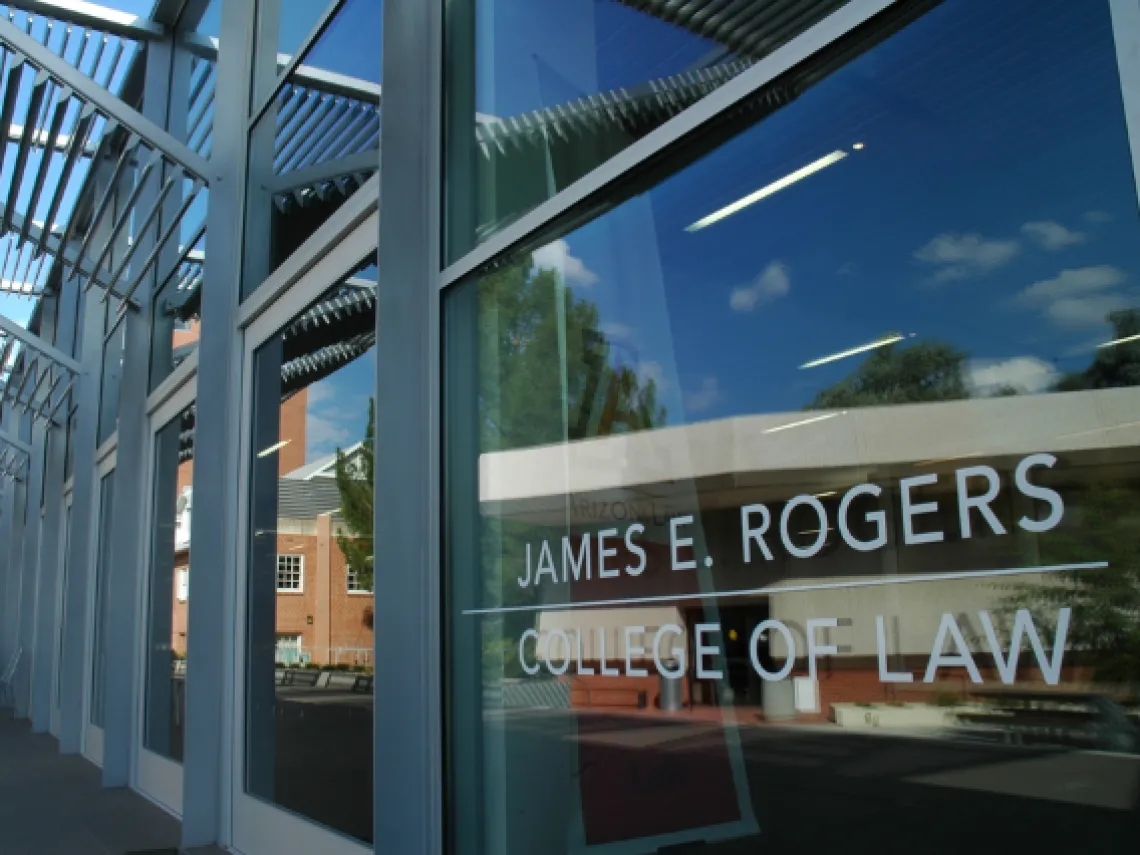University of Arizona Law Celebrates Fulbright Award Recipients
For more than 75 years, Fulbright award winners have addressed critical global issues in all disciplines.

Professors of Law Albertina Antognini and Andrew Keane Woods with the University of Arizona James E. Rogers College of Law have both been named Fulbright U.S. Scholars for the 2022-2023 academic year.
The flagship international exchange program sponsored by the U.S Department of State and the J. William Fulbright Foreign Scholarship Board is funded through an annual appropriation made by U.S. Congress. Participating governments and host institutions, corporations and foundations around the world also provide direct and indirect support to the program, which operates in more than 160 countries worldwide.
For more than 75 years, Fulbright award winners have addressed critical global issues in all disciplines, while building relationships, knowledge, and leadership in support of the long-term interests of the United States. Several distinguished academics across the country have participated in the program including Negar Katirai clinical professor of law from the University of Arizona Law.
Rights of the Unmarried
Professor Antognini has spent years analyzing the way courts handle claims of unwed partners after a relationship ends. The codified divorce procedures that apply to married couples do not apply to those who are unmarried. Outside of marriage, an individual seeking a division of assets, including property or support, faces many barriers.
Most state courts view nonmarital relationships through the lens of marriage, which leads to ill-fitting analyses and inequitable results. For Antognini, not only are these parameters too restrictive, but they come with antiquated ideas around gender roles that the law for the most part no longer applies even to married couples.
While assisting the Uniform Law Commission with developing draft legislation around regulating the rights of unmarried couples, Antognini became interested in how countries around the world have addressed this issue. This fall, she will get her chance to find out in Stockholm, Sweden where she will conduct a comparative review of the county’s approach to regulating nonmarital relationships.
“Sweden is one of the first countries to have passed an act regulating what rights unmarried couples have, and the rates of unmarried couples are very high in Sweden,” said Antognini, who co-directs the Family and Juvenile Law Certificate program. “There are many differences between Sweden and the U.S., but I think it's an interesting place to look at in considering what other models are out there that may be relevant as we undertake reform efforts domestically.”
Through this work she seeks to address the inherent inequality at the center of the way courts view unmarried couples.
“Courts are reinforcing traditional views about what counts as ‘work’ and what they will allow to lead to property distribution,” explained Antognini. “What they say is ‘If you work within the home that's all free labor, and you don't get anything as a result.’ That clearly has gendered implications. Typically, that means that the woman in a different sex relationship does not get anything at the end of the relationship, but it also affects same-sex relationships. The homemaker, regardless of gender, typically does not have access to property which is an inequality that I care about eradicating. It is especially pressing given the high rates of nonmarriage and the fact that marriage is becoming something of an elite status, which makes restricting access to property outside of it that much more problematic.”
Digital Sovereignty
For more than 20 years, the U.S. and Europe have pursued very different visions of what state control over the internet can and should look like. Professor Woods will explore these topics during his Fulbright-Schuman Innovation Award starting in January of 2023.
“As the U.S. debates digital privacy, online speech, and related topics, we should draw on the experience of other sovereign efforts to regulate the internet,” explains Woods, who co-directs University of Arizona Law’s TechLaw program. “What might an American version of GDPR look like? What lessons could be learned from other countries’ approaches to AI and cybersecurity?”
Woods will focus his work on understanding how aggressively the state should shape our digital lives by comparing U.S. and E.U. policies on artificial intelligence, privacy and cybersecurity. In the decades since the internet became widely accessible, the U.S. has taken a laissez faire approach to its regulation. Meanwhile, Europe has been much more interventionist. In comparing the two, Woods hopes to produce real-world policy impact by identifying the costs and benefits of each approach. He will conduct his work at the University of Copenhagen in Denmark which houses the Digitalization Hub.
Among the most pressing policy questions today is how to regulate cyberspace.
“Our fundamental values, our free speech rules, our privacy rules and our civil rights rules, how do they translate to a digital space? That is something that other countries in the world have taken very seriously,” said Woods. “There is a sense in which the U.S. is behind its peers in this regard.”
In addition to Woods and Antognini, a University of Arizona Law student was also named a Fulbright U.S. scholar. Benjamin Lawrance, PhD, a professor of history at the University of Arizona and a rising third-year JD student at the college and will be spending the fall in South Africa developing “African Studies from the Ground Up.” The project includes designing and teaching a new interdisciplinary continent-wide African Studies curriculum for instruction at the undergraduate and graduate level and to develop and launch a program of mentorship and career development targeting early-career scholars and teachers in the faculty of humanities at Nelson Mandela University.
